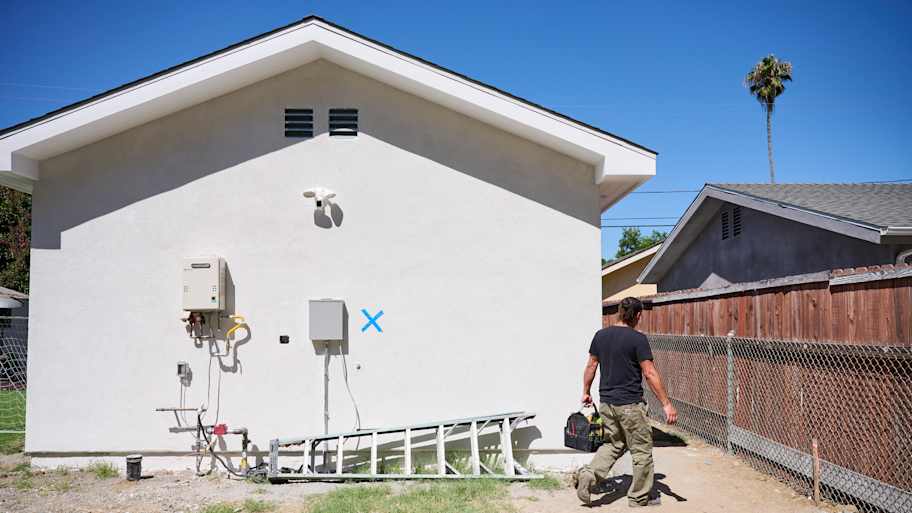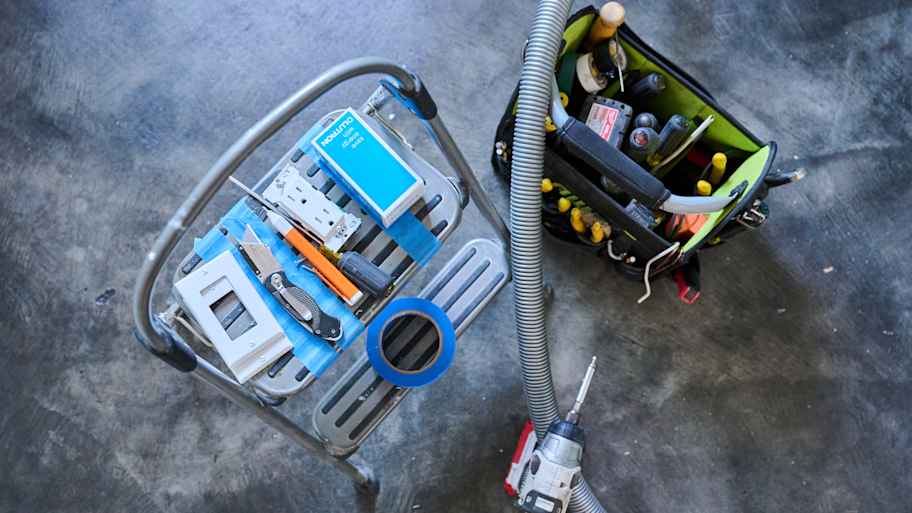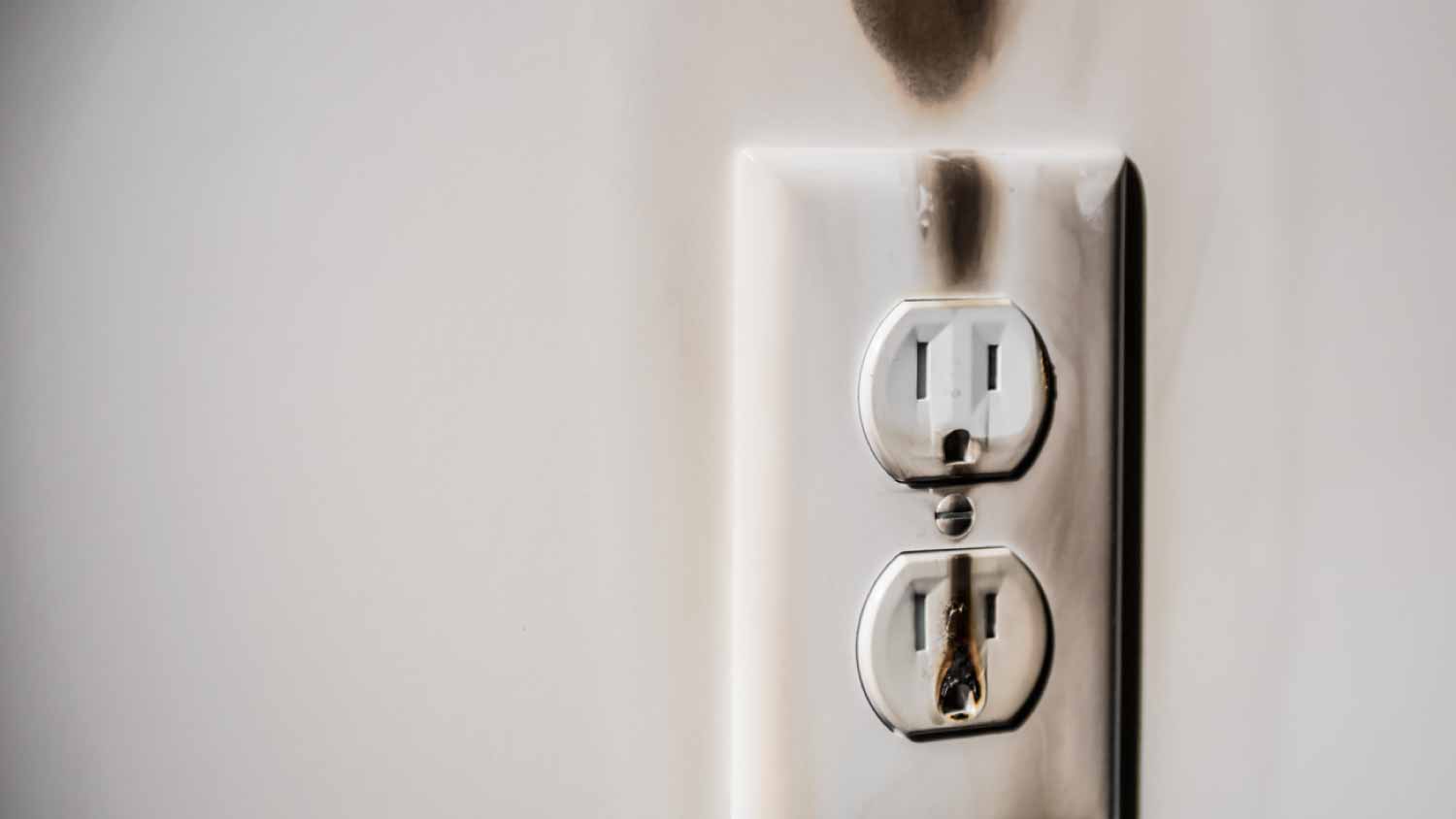10 Things to Do When the Power Goes Out at Home
Don’t be left in the dark


One minute you’re happily making dinner, and the next … you’re in total darkness wondering what just happened. Power outages are bound to occur sooner or later. Big thunderstorms, wind, snow, a downed power line in your yard, and rolling blackouts can all be reasons for losing your electricity.
How well you’re prepared determines how stressed out you’ll be when dealing with a power outage. Here are 10 things to do when the power goes out at home.
1. Prepare in Advance
Whoever said “an ounce of preparation is worth a pound of cure” had probably sat in their living room wishing for a flashlight when their electricity went off. So prepare for a power outage while the lights are still on. Practicing emergency preparedness for a power outage puts you miles ahead in being safe and comfortable.
Keep your home stocked with the following emergency supplies. Store them in a convenient location, so you can grab them quickly.
Fresh Batteries
If there’s no electricity, batteries are your BFFs. Stockpile for your flashlights, radio, electronics, and anything else that’s battery-operated. Keep your lines of communication open by adding a battery backup for everyone’s cell phone, too.
Emergency Kit

It’s a smart idea to proactively prepare a kit for emergencies. Several flashlights, candles, matches, bottled water, a manual can opener, non-perishable food, and a battery-operated or hand-crank radio should be your staples.
Backup Generator
Invest in a portable generator for emergency lighting and other important electrical equipment if you’re forced to deal with an extended power outage. You especially need a generator if you or someone in your family takes medicine that’s required to be refrigerated or uses an electrical medical device.
2. Find a Way to See
What to do when the power goes out hinges on being able to move around. Your first order of business is to get some light into your home. Trying to navigate in the dark sets you up for dangerous falls.
Turn on your cell phone’s flashlight and make your way to your emergency kit. Hand out flashlights and candles (which should be in containers to avoid a fire).
3. Check Your Neighborhood for Lights
The first thing to figure out is whether it is an electrical problem with your house, or if the outage is more widespread. Look out your window and see if the streetlights are still on and if your neighbors have lights.
If you see lights, you may have just tripped a breaker or have a blown fuse. Finding your fuse box and resetting the circuit breaker will most likely reinstate your power. If you need help with electrical issues, call a licensed electrician near you.
If the entire neighborhood is dark, you’re most likely dealing with a power outage caused by something outside your home like bad weather, a rolling blackout, or a downed power line in your yard.
4. Report the Outage

Contact your utility company and report the power outage. They track the areas where power is out and need to know how many households are without electricity.
Most utility companies show power outage areas on their website. You can log into your account, read the outage information, and stay updated on the estimated time your power will be back on.
5. Disconnect Your Electronics and Appliances
Power surges, which are common as teams work on power restoration, can damage your expensive electronic devices and appliances. When you realize the power’s out, minimize the chances you’ll be shelling out money for costly repair and replacement costs.
Unhook Your Electronics
Go from room to room unplugging each one to guard against expensive replacement costs that can be caused by a power surge. Make sure to roll up the cords and store them out of the way to keep from tripping over them in the dark.
Electrical Appliances
Your electric stove, refrigerator, and dishwasher are big-ticket items you need to protect against power surges. Unplug every appliance as soon as you realize the power’s out and leave them that way until you’re confident the problem is fixed for good. If you cook with natural gas, don’t worry about your stove.
6. Keep the Refrigerator and Freezer Closed
Nobody wants to suffer through a power outage only to end up with food poisoning a few days later because they ate something that was ruined while the electricity was off. Food safety is important during and after a power outage.
Refrigerator
Are you wondering how long refrigerated food will last after the power goes out? After all, you’ve spent good money on groceries and you don’t want them to go bad. Items in your fridge should be safe to eat after a temporary power outage of up to four hours. After that, throw out perishables like meat, eggs, and dairy.
Keep your food as cool for as long as you can by not opening the refrigerator door for any reason. Put a sign on it to remind everyone to leave it closed. Tape it closed for extra assurance.
Freezer
Most foods will stay frozen for one to three days in an unopened freezer. The key here is to keep it shut—tell everyone in the family the freezer is off-limits. Once the electricity’s back on, check the freezer’s contents and throw out anything that’s half or completely thawed out.
7. Fill the Bathtub

During a power outage caused by severe weather, it stands to reason your water supply could dwindle, too. Be on the safe side by adding three days’ worth of water to your emergency kit. Run your bathtub full of water as an extra precaution. You can use it to wash dishes, flush toilets, and wash yourself off if the power outage lingers.
8. Stay Warm or Cool
Depending on the temperature when the power goes off, make an effort to regulate your temperature. ‘
Hot Weather
Move everyone, including your pets, to the lowest level of your house. If weather permits, open your windows to create a breeze. If it’s sunny, block it out by closing your curtains or blinds. Dress in summer clothing like tank tops and shorts made from lightweight, breathable fabric.
Cold Weather
If you have a fireplace, now’s the time to build one. Gather everyone in the warmest room of the house under blankets and throws. Dress in layers and don’t forget socks and head covering. If you don’t have another source of heat and it’s safe to travel, move your family to a heated emergency shelter.
During extreme cold weather, leave at least one faucet dripping so you don’t end up dealing with frozen pipes on top of a power outage.
9. Stay Hydrated
Now is not the time to ration drinking water.
Bottled: Everyone should help themselves to the safe bottled drinking water you set aside in your emergency preparedness plan. Aim to drink a minimum of 48 ounces every day to stay hydrated, and 12 to 16 ounces more during hot weather.
Boiled: If you didn’t store enough safe drinking water to ride out the power outage, your best bet is to boil some. Fire up your outdoor grill or gas stove and set a large pot of water on it. Once it begins boiling, allow it to boil for at least one minute. Set it aside and let it cool before drinking it.
10. Take Safety Precautions
It’s easier to get hurt during a power outage because of your decreased ability to see. Since driving may not be an option because of bad weather, and emergency rooms will be jam-packed anyway, it’s wise to practice power outage safety during a blackout.
Carbon Monoxide Poisoning
When anything burns, it produces colorless, odorless gas that’s poisonous. Running generators or grilling inside can cause carbon monoxide poisoning. Take great care to avoid this by putting your generator near an open window and keeping your grill outside.
If any of your family feels dizzy, nauseous, have an upset stomach, vomiting, chest pain, or confusion, they could be suffering from carbon monoxide poisoning. Take them outside immediately so they can breathe fresh air.
Falling Down the Stairs
Both inside and outside stairs are hazards during a power outage. Without being able to see where you’re going, you can easily miss a step, get your foot hung on loose carpet or boards, or slip on wet steps in the rain. Proactively add stair treads to make stairs safer.
Avoid staircases as much as possible during a power outage. If you must navigate steps, take a flashlight, go slowly, and hold the handrails to stay upright and injury-free.
Burns
Building a fire, lighting candles, and grilling put you in harm’s way. Burns can blister, cause severe pain, and get infected if you aren’t careful.
Wear protective gloves and stay vigilant when you’re around a fire or hot surfaces. If you get burned, treat the area by pouring cool water over it, dabbing aloe vera on it, and wrapping it in a clean bandage.





- Home Generator Repair
- Lamp Repair
- Electric Repair
- Generator Installation
- TV Antenna Services
- Emergency Electricians
- Commercial Electricians
- Attic Fan Installation
- Attic Fan Repair
- Exhaust Fan Installation
- Electric Inspectors
- Subcontractors
- Electrical Construction
- EV Charger Installer
- Chandelier Installation
- Doorbell Installation
- Bathroom Fan Installation
- Ring Installers
- Electrical Panel Upgrade
- Everything You Need in Your Power Outage Emergency Kit
- What to Do During These 5 Common Home Emergencies
- How Long Your Food Lasts in the Fridge Without Power
- How to Deal With These 4 Home Repair Emergencies
- Downed Wire in Your Yard: Who to Call
- What is an Electrical Emergency? How To Handle To Protect Your Home
- How to Prepare for a Hurricane: 12 Essential Steps
- 14 Home Renovation Tips for a Stress-Free Project
- 15 Generator Uses for Homeowners
- 14 Preventive Plumbing Maintenance Tips You Should Know










